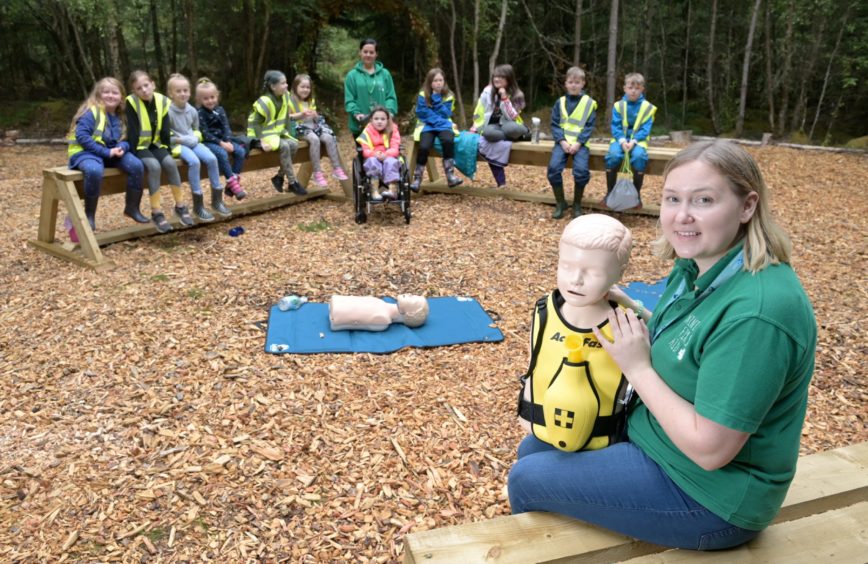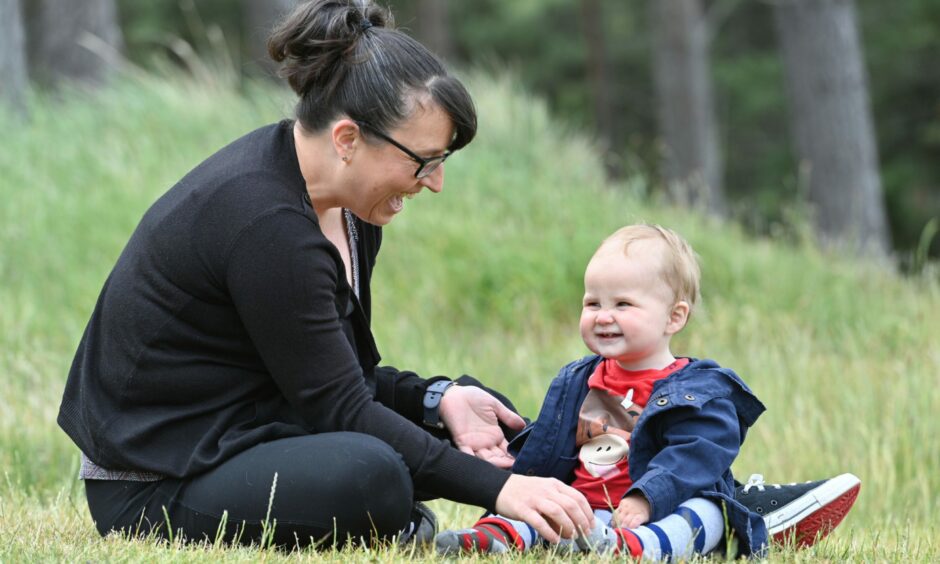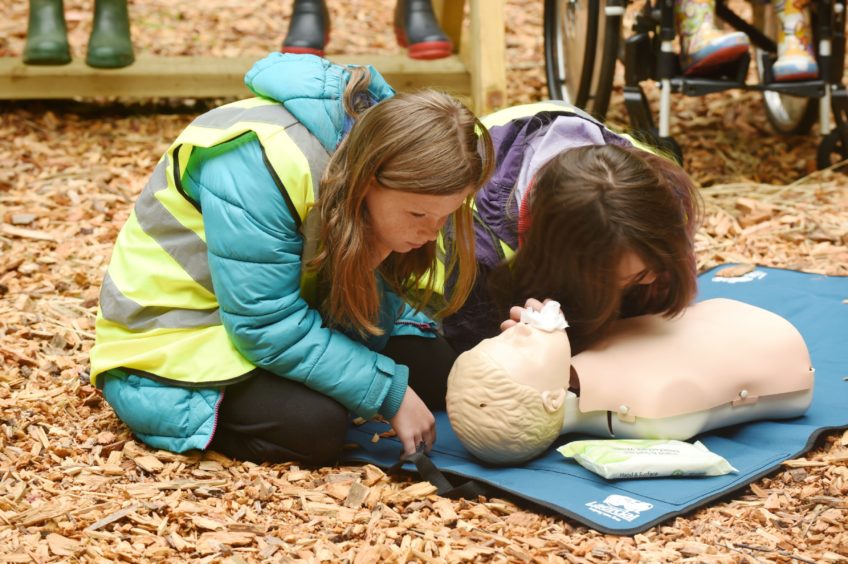It is never too early to start on First Aid skills – and one mum is focusing on kids in the north, who often live in rural areas.
Recent figures for the north east show that in some parts, it can take 18 minutes for medical help to arrive at the scene after the 999 call.
And a national British Red Cross study found that as many as 59% of deaths from injury could have been prevented with first aid.
Being quick to the phone and dialling 999 is critical, but sometimes taking action while you wait is what makes the difference.
While bystanders – whether children, parents or strangers – are often quick to call for help, studies show they’re reluctant to provide first aid.
But Kayleigh McDine – local mum, swimming instructor and owner of Mini First Aid Highlands and Moray – is working to change that narrative.
Giving children the necessary skills at an early age can help them be confident in an emergency, she said.
By teaching first aid classes to kids and families, she wants people to make the most of opportunities to save a life in danger.
Knowing basic skills can ease anxiety
Ms McDine knows there are often steps we all can take to help someone who is injured. It’s important to begin first aid quickly and dial 999 for help, she said, but many parents who live in rural areas worry about tragedy striking while professionals are still on the way.
“I cover from Keith to Skye, Fort William to Thurso. In lots of rural villages, I work with groups of new parents and families who are really anxious. If something were to happen to them or their child, there are real anxieties around the time it could take for the ambulance to arrive or to get themselves to hospital.”
Statistics from the Scottish Ambulance Service show that there is a wide variation between response times to city addresses and rural ones. The national target time is eight minutes.
In 2020, Average response times around Aberdeen ranged from five minutes in the city to 10 minutes or more in the countryside.
In rural areas around Dundee, some of the longest responses took as many as 18 minutes.
Mini first aid put to the test
Kelly Croudace registered for a class with Ms McDine last year.
“Sometimes you don’t always know exactly when the ambulance will arrive. The class gave me the peace of mind knowing that, in an emergency, I could handle the immediate danger.”
And that’s just what Ms Croudace did last month, when her one-year-old was choking and she acted quickly to save his life.
Empowering kids with first aid
Ms McDine said that she takes a lot of comfort from stories like Ms Croudace’s. But she added that it’s also important to teach kids the basics of first aid.
That’s why Mini First Aid starts the education early. Ms McDine offers courses kids courses three main age groups: early years (3-6), kids (7-11) and teens (11-16).
For the younger children, Ms McDine focuses on the basics: how to dial 999, memorizing your address, understanding what is happening to your body when you’re hurt.
Around primary school age, Ms McDine begins to teach kids the types of first aid they can safely use when no adults are around: applying cling film to burns, administering CPR, moving someone onto their side if they’re unconscious.
Ms McDine believes it’s important to equip children with the tools they need to keep each other safe.
“If everyone knew basic first aid our survival rates would be better than what they are.
“We believe that children are capable of much more and that children should learn this essential life skill from an early age. Anything that gets kids learning these skills is just brilliant.”
Read more from the Schools & Family team
North-east teacher reprimanded after showing pupils exam questions
Islanders fear £53 million community development plan is a ‘cost-cutting guise’
Fire your kids’ imagination with these magical locations across the north and north east


